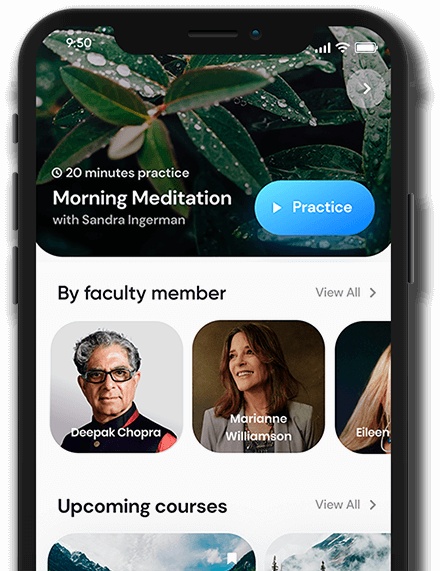WHAT IS INDIGENOUS PEOPLES' DAY?
Celebrated the second Monday of every October, Indigenous Peoples Day is a day to honor past and living Indigenous people, leaders, and nations as the original stewards of the lands, waterways, and oceans on which each of us depend.
The Smithsonian Magazine has this to say about the origins of the holiday:
“The first documented observance of Columbus Day in the United States took place in New York City in 1792, on the 300th anniversary of Columbus’ landfall in the Western Hemisphere. The holiday originated as an annual celebration of Italian–American heritage in San Francisco in 1869. In 1934, at the request of the Knights of Columbus and New York City’s Italian community, President Franklin Delano Roosevelt declared the first national observance of Columbus Day. President Roosevelt and the U.S. Congress made October 12 a national holiday three years later. In 1972 President Richard Nixon signed a proclamation making the official date of the holiday the second Monday in October.
Generations of Native people, however, throughout the Western Hemisphere have protested Columbus Day. In the forefront of their minds is the fact that the colonial takeovers of the Americas, starting with Columbus, led to the deaths of millions of Native people and the forced assimilation of survivors.
In 1977 participants at the United Nations International Conference on Discrimination against Indigenous Populations in the Americas proposed that Indigenous Peoples’ Day replace Columbus Day. Indigenous Peoples’ Day recognizes that Native people are the first inhabitants of the Americas, including the lands that later became the United States of America. And it urges Americans to rethink history.”
WHERE DID THE IDEA OF INDIGENOUS PEOPLES’ DAY EMERGE & WHEN?
Berkeley, California was, reportedly, the first city in America to mark Indigenous Peoples’ Day in 1992. Today, at least eighteen states and more than 100 cities and towns nationwide have replaced Columbus Day with Indigenous Peoples’ Day.
DOES IT REPLACE COLUMBUS DAY? A QUESTION FOR FURTHER EXPLORATION
Columbus Day is a Federal holiday also on the 2nd Monday of October est. 1934. Columbus is credited for “discovering” inhabited lands.
Columbus Day is a federal holiday, which means it is outside the jurisdiction of states and cities. Some states or cities may not observe this federal holiday, but instead choose to celebrate First Nations’ peoples and formally recognize Indigenous Peoples Day as a holiday instead.
HOW CAN YOU LEARN MORE ABOUT INDIGENOUS PEOPLES’ DAY?
How does honoring original caretakers and stewards (Indigenous people) support human evolution and transformation? Explore and learn more at these events.
EVENTS:
First Nations Development Institute Indigenous Peoples’ Day Movement Event
Virtual IPD Event Wednesday, October 13, 2021 10a PST/1p EST
https://us02web.zoom.us/j/82546700677
First Nations Development Institute
Established in 1980, The First Nations Development Institute was the first nonprofit social enterprise exclusively committed to Native control of tribal assets. Since then, they have become a leading Native-led nonprofit in service of strengthening Native economies and communities. First Nations Development Institute believes that when armed with the appropriate resources, Native Peoples hold the capacity and ingenuity to ensure the sustainable, economic, spiritual and cultural well-being of their communities.
Website: https://www.firstnations.org/
Facebook: https://www.facebook.com/FirstNationsDevelopmentInstitute/
Twitter: https://twitter.com/FNDI303
LinkedIn: https://www.linkedin.com/company/first-nations-development-institute/
YouTube: https://www.youtube.com/user/FNDI303
NATIONAL MUSEUM OF THE AMERICAN INDIAN SMITHSONIAN INSTITUTE
Website: https://americanindian.si.edu/
EVENTS: https://americanindian.si.edu/calendar
Youth in Action: Indigenous Peoples’ Day - Black-Indigenous Youth Advancing Social Justice
How are Black-Indigenous youth working to advance social justice? This Indigenous Peoples' Day program highlights youth of blended Black and Native heritage who use art, activism, and policy to advance Black and Indigenous solidarity and affect positive change in their communities. The program is free, but advance registration is required. A direct link to view the program will be emailed to registrants 24-48 hours before the program. The program will be available on demand after it premieres.
Facebook. https://www.facebook.com/NationalMuseumoftheAmericanIndian/
YouTube. https://www.youtube.com/user/SmithsonianNMAI
Instagram. https://www.instagram.com/smithsoniannmai
#nationalmuseumoftheamericanindian
RESOURCES
First Nations Development Institute
Reclaiming Native Truth “Reclaiming Native Truth is a national effort to foster cultural, social and policy change by empowering Native Americans to counter discrimination, invisibility and the dominant narratives that limit Native opportunity, access to justice, health and self-determination”. FNDI
National Indigenous Women’s Resource Center // Missing & Murdered Indigenous Women & Children Movement
Interactive Map of Traditional Place Names and Shared Homelands
Seattle Times Article, Oct. 14, 2019, “Here’s the Story behind Indigenous Peoples’ Day and how Seattle is marking it.” https://www.seattletimes.com/seattle-news/events-celebrations-set-to-mark-indigenous-peoples-day-in-seattle/
Churchill, W. (1994) Indians are Us: Culture & Genocide in Native North America Excerpt on Columbus & Expeditions + ConsequencesSmithsonian Magazine source noted above: https://www.smithsonianmag.com/blogs/national-museum-american-indian/2020/10/12/indigenous-peoples-day-updated2020/
